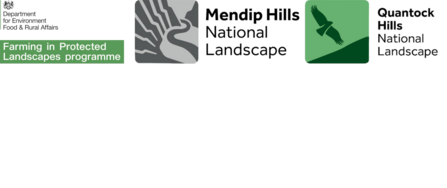The Private & Community Nature Reserves (PCNR) Network is a user-led group hosted by Somerset Wildlife Trust which provides peer-to-peer support for people who own or manage land primarily for nature — including landowners, smallholders, and community groups. It will be celebrating an official relaunch on Saturday 6th July, uniting like-minded individuals to help achieve more for nature’s recovery in Somerset.
Currently just 10% of Somerset’s landscapes can be classified as being in ‘good natural or semi-natural condition’. Somerset Wildlife Trust works with communities, landowners, and farmers across the county to make more space for nature by restoring and reconnecting habitats to form part of a national Nature Recovery Network. Through the PCNR Network, landowners and land managers are able to collaborate and share ideas on how their land can act as a vital stepping stone for wildlife and deliver benefits for nature, people, and climate.
The PCNR Network was first set up in the 1990s, with members supporting each other over the decades to manage their land for nature. Unfortunately, the COVID-19 pandemic paused the activities of the Network, but it will be celebrating its official relaunch this July, and Somerset Wildlife Trust is inviting both pre-existing members and those interested in learning more about the Network to join them on the day, which will include a guided walk on Chancellor’s Farm, a permit-only Somerset Wildlife Trust reserve not usually accessible to the public.
About the Relaunch Event:
Date: Saturday 6th July 2024
Time: 11am – 3pm
About: Join Somerset Wildlife Trust for the official relaunch of the Private & Community Nature Reserves (PCNR) Network, which supports landowners and land managers in Somerset to manage land primarily for nature. The relaunch event is open to both pre-existing members and those completely new to the group and will include:
-
An introduction from Somerset Wildlife Trust’s Director of Nature Recovery, James Grischeff, who will discuss how the PCNR Network plays an important role for nature’s recovery in Somerset.
-
An open space session for attendees to network and share ideas around nature-friendly land management.
-
A guided walk around Somerset Wildlife Trust’s Chancellor’s Farm, a permit-only nature reserve, which will be led by Central Mendip Reserves Manager at the Trust, James Ozolins.
-
A tour of Easton Wildlife Groups local community projects.
Hannah Paddison, Volunteering & Community Support Officer at Somerset Wildlife Trust, says: “We’re really excited to be hosting the relaunch of the PCNR Network! The group provides so many benefits for people who want to support nature on their land. Through the Network, members can collaborate, share the challenges and successes they’ve experienced, arrange to visit each other’s reserves, and benefit from dedicated support from Somerset Wildlife Trust through tailored training and resources. The PCNR Network really has been a valuable resource for previous members, and we see the huge potential to support even more land managers to take action for nature and collectively play a vital role in connecting up habitats. This relaunch event is the perfect opportunity to find out more about what the PCNR Network might be able to offer landowners that manage their land to deliver for nature at this critical time, so please do come along if you’re interested in learning more!”
The PCNR Network is a user-led group hosted by Somerset Wildlife Trust. The relaunch of the PCNR Network is partly funded by the Mendip Hills and Quantock Hills National Landscapes via Farming in Protected Landscapes (FiPL) funding.
You can find out more about the PCNR Network relaunch event and book your place by visiting the Somerset Wildlife Trust website.

